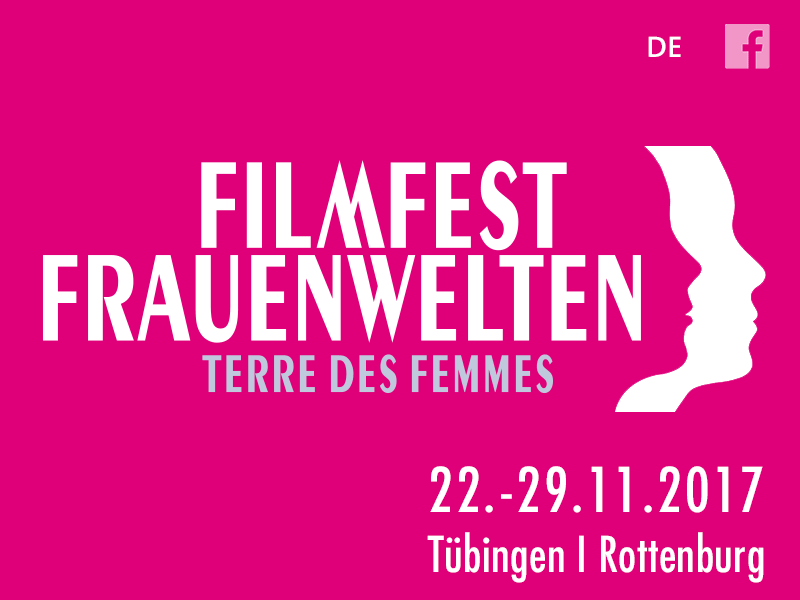Feature Film Guests
|
Rachel Braunschweig
Film: Die göttliche Ordnung
Q&A:
Saturday, 25.11.2017, 8:30 pm , Studio Museum
Sunday, 26.11.2017, 6:00 pm, Studio Museum
Sunday, 26.11.2017, 8:15 pm, Kino Waldhorn Rottenburg
Rachel Braunschweig, born in Horgen near Zürich in 1968,
graduated from the Zürich University of the Arts with a diploma
in Theater Performance and Pedagogy, with basic studies in German
philology and Comparative Literature. She subsequently worked for
four years in Germany as a permanent member of the theatre ensemble
in Hannover and Wilhelmshaven and toured all through India with
the play Henry V , under the comission of the Goethe Institute.
Her last performance tour took her to Ouagadougou in Burkina Faso.
She was awarded the Swiss film prize in the category of Best Performance
in a Supporting Role for her portrayal of Therese in the film hit, „Die
göttliche Ordnung“. Rachel Braunschweig can be heard
regularly as an announcer on the Swiss Radio station SRF. She also
produces her own theatre and can often be seen in TV productions.
Filmography (Selected):
2016 Blue my mind, Spielfilm
2016 Die göttliche Ordnung, Spielfilm
2015 Der kleine Diktator, Spielfilm
Awards:
2017 Beste Darstellung in einer Nebenrolle, Schweizer Filmpreis (Die
göttliche Ordnung)
2017 Auszeichnung für Co-HauptdarstellerIn, Prix de Soleure (Die
göttliche Ordnung)
|
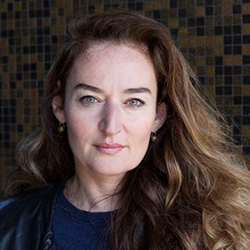 |
|
Bobbie Koek
Film: Layla M.
Q&A:
Friday, 28.11.2017, 6 p.m., Kino Museum 2
Growing up in the theater
scene (her father is theater-maker Paul Koek), Bobbie has worked
as an actress in theater plays, movies
and series ever since finishing high school. Among others, she
played in the One Night Stand movie 'Au Cigogne!', directed by
Margien Rogaar and had a fixed role for six years in the TV-series
'Kinderen Geen Bezwaar' by VARA. In 2010 she decided to stop
with the series, as she wanted to advance as a producer. She was
accepted
at the Netherlands Film Academy, for the program Directing Fiction.
Bobbie still has a special admiration for acting, which is why
she focused on stage directing during her studies. After completing
her studies, she worked as a casting director, actress and assistant
director for the movie 'Layla M.' by Mijke de Jong. She was intensely
involved in the casting and research process and prepared the
rehearsals with regards to content. Therefore, she worked closely
with Mijke
and the actors Ilias Addab and Nora El Koussour for one and a
half years. Afterwards, Bobbie worked as a casting director at
Oi Mundo
Casting. In September 2016, she made the short film 'TAMU', which
was selected for the debut competition of the Netherlands Film
Festival in 2017 and for the 14+ competition at the KUKI film
festival in Berlin. At the moment Bobbie is developing various
projects,
among them a feature film in collaboration with Hans de Wolf,
Halal and Franky Ribbens. In 2018, she will most likely work again
with
Mijke de Jong in different projects. Filmography:
2017 Tamu (Director)
2016 Layla M.
2012 Hoe kom je erop?
2004-2013 TV-Series: Kinderen geen bezwaar
2004 Au cigogne!
|
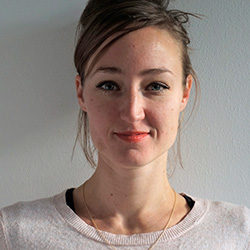 |
|
Alice Schmid
Film: Das Mädchen vom Änziloch
Q&A:
Tuesday, 28.11.2017, 8:30 pm, Studio Museum
Wednesday, 29.11.2017, 6:00 pm, Studio Museum
Alice Schmid, born in 1951 in Lucerne, studied Italian and Spanish
philology, as well as Screenwriting and Directing at the Film Academy
in New York. She started her own film production company in 1996
called Ciné A.S. GmbH. Additionally, she has achieved literary
success: her novel „Dreizehn ist meine Zahl“ made it
onto the Swiss bestseller list. Children and adolescents are often
the focus of her films, as in „Die Kinder vom Napf”,
the opening film for the Generation section at the Berlinale in
2012. Throughout the years, Schmid has made many television films
in foreign countries; she portrayed child soldiers in Liberia and
Sierra Leone, filmed with children growing up among minefields
in Cambodia, and gave a glimpse into the hard life of a girl in
the Bolivian Andes. Like „Die Kinder vom Napf”, her
film „Das Mädchen vom Änziloch“ was shot
in the Napf Region in Switzerland.
Filmography (Selected):
2016 Das Mädchen vom Änziloch, Feature film
2011 Die Kinder vom Napf, Documentary
2004 Soll ich bleiben oder gehen?, Documentary, Sierra Leone
2000 Ich habe getötet, Documentary, Liberia
1998 Einmal im Leben ins Kino, Docudrama, India
Awards for „Das Mädchen vom Änziloch“:
2017 Young Audience Award, European Film Academy EFA
2017 Bester Dokumentarfilm, Filmfestival della Lessinia
2017 Innerschweizer Filmpreis, Albert Koechlin Stiftung
|
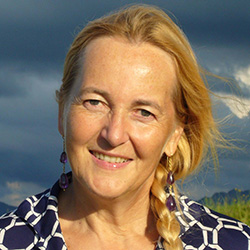 |
|
Sabiha Sumar
Films: Azmaish – A Journey Through the Subcontinent
Khamosh Pani – Silent Waters
Q&A:
Sunday, 26.11.2017, 8:30 pm, Studio Museum (Khamosh Pani – Silent
Waters)
Monday, 27.11.2017, 6:00 pm, Studio Museum (Azmaish)
Tuesday, 28.11.2017, 6:00 pm, Kino Waldhorn, Rottenburg (Khamosh Pani – Silent
Waters)
Sabiha Sumar, was born in Karachi, Pakistan in 1961, and studied
Political Science, Filmmaking, and History in New York and Cambridge.
She founded her own production company, Vidhi Film, in 1992, giving
her the independence to create films that critically observe social
issues. Sumar is among the pioneers of Pakistani cinema, and broaches
her homeland’s social, economic and political problems through
her films, often with the focus on women. With her first feature
film “Kamosh Pani – Silent Waters”, which had
its German debut at Women’s Worlds in 2003, she brought Pakistan
into the cinemas of the world and won 17 international film prizes.
Her similarly-prizewinning documentary films especially show how
socio-political topics shape Sabiha Sumar’s work. Religious
fundamentalism and its effects, especially on the lives of women
in Pakistan, are critically brought into focus.
Filmography (Selected):
2017 Azmaish – A Jouney Throug the Subcontinent, Documentary
2013 Good Morning Karachi, Feature Film
2012 Saving Face, Documentary
2007 Dinner with the President, Documentary
2003 Khamosh Pani – Silent Waters, Feature Film
1988 Who Will Cast The First Stone, Documentary
Awards (Selected):
2017 Special Recognition Award, London Asian Film Festival
(Azmaish)
2012 Oscar, Best Documentary Short Subject (Saving Face)
2003 Goldener Leopard, Locarno Intern. Film Festival (Kamosh Pani – Silent
Waters)
1998 Golden Gate Award, San Francisco Film Festival (Who Will Cast the
First Stone)
|
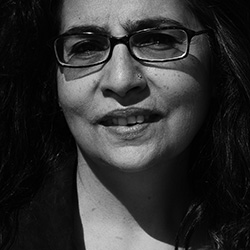 |
Documentary Film Guests:
|
Tata Milouda
Film: Patience, patience, t’iras au paradis!
Q&A:
Sunday, 26.11.2017, 11:00 am, Frauencafé achtbar
Sunday, 26.11.2017, 6:00 pm, Museum Kino 2
Tata Milouda was born in Settat, Morocco, near Casablanca, in 1950 and
was married early as a young girl. She never had the chance to attend
school. In 1989 she ran away from her violent husband to France and
left her six children in Morocco. With only three words of French and
100 Francs in her pocket, she fought her way through as a dishwasher,
housekeeper and nanny. In 1994 she filed for divorce and received a
French passport. She was also able to send for her three daughters
to live with her in France. In the same year Milouda attended literacy
courses where she encountered theatre and poetry slam for the first
time. From 2008 to 2010 she appeared on stage herself as a poetry slammer
in small theatres in Paris. In subsequent years she developed her own
works and staging. Her slams are full of the optimism of freedom, love
and personal dreams. By telling her her own life story, she helps and
strengthens women in defending themselves against domestic violence
and opening their lives to new possibilities. She received the Ordre
des Arts et des Lettres from the French Cultural Ministry in July,
2012, for her life’s work and extraordinary creativity. Tata
Milouda continues to tour through France, Belgium and Morocco and is
the grandmother of nine grandchildren.
Filmography:
2016 Our Mother, Spielfilm
2015 Patience, patience, t’iras au paradis!, Dokumentarfilm
Awards:
2012 Ordre des Arts et des Lettres, Kulturministerium Frankreich
|
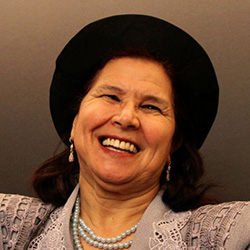 |
|
Rakieta Poyga
Film: Jaha’s Promise
Q&A:
Friday, 24.11.2017, 6:00 pm, Studio Museum
Rakieta Poyga was born in 1960 in Ouahigouya, Burkina Faso. From
1984 to 1994, her study of economics brought her to Germany, in
the former GDR. The excruciating pain and complications Rakieta
experienced during the birth of her first child due to her circumcision,
led her to ground the organization “Association Bangr Nooma” which
means “There is nothing better than knowledge”, in
1998. Central to Bangr Nooma’s work are the campaigns to
educate and convince people in the rural villages and the poor
suburban neighborhoods of the capital Ouagadougou against Female
Genital Mutilation (FGM). In Burkina Faso, more than 76% of the
girls and women are affected by FGM. One focus of the organization
lies in the training and education of local influential people,
who function as multipliers. This includes village and religious
leaders, teachers, police, representatives from women’s organizations,
traditional midwives, and most importantly, former circumcisers.
Poyga’s organization has been supported by TERRE DES FEMMES since
its inception. Additionally, for over 20 years, Rakieta Poyga has been
active with the GIZ (the Germany Society for International Cooperation),
where she, among other things, leads a project for integrated forest
management in Burkina Faso. Furthermore, with the support of the “Aktionsgemeinschaft
Solidarische Welt” and the “Aktion Weltkinderhilfe”,
Poyga founded a educational center for young women and men.
|
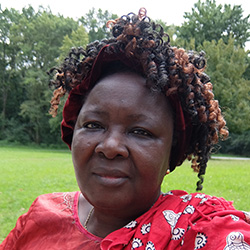 |
Experts:
|
Simone Helmschrott
Film: Reseba – The Dark Wind
Q&A:
Tuesday, 28.11.2017, 6:00 pm, Studio Museum
Simone Helmschrott is a historian and scholar of Islamic studies,
and, among her other accomplishments, was involved in the state
of Baden-Württemberg’s Special contingent for particularly
vulnerable women and children from northern Iraq (“Sonderkontingent
für besonders schutzbedürftige Frauen und Kinder aus
dem Nordirak" des Landes Baden-Württemberg). She works
for the State Ministry of Baden-Württemberg on diverse follow-up
tasks related to the Special Contingent.
|
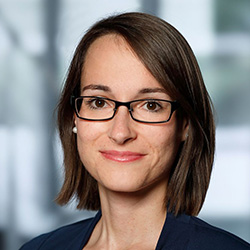 |
|
Brigitte Krehl
Film: Los niños – The Grown-Ups
Q&A:
Friday, November 24, 2017, 3:30 p.m., Kino Museum 2
Brigite Krehl was born in 1965 and studied Social Pedagogy in
Hamburg. Krehl has been working with Lebenshilfe (Life Assistance)
Tübingen since 2001, in the area of occupational training.
She prepares people with learning difficulties and disabilities
to enter the job market. Together with her students she searches
for possibilities which fit their personal abilities and interests.
They co-operate closely in this effort with many companies in the
region.
|
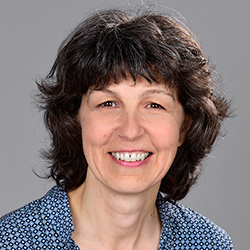 |
|
Brigitta Kröhnert
Film: A Better Man
Q&A:
Sunday, 26.11.2017, 3:30 pm, Studio Museum
Brigitta Kröhnert has a degree in pedagogy and has been active
with the women’s organisation „Frauen helfen Frauen
e.V.“ in Tübingen for 23 years. There Brigitta Kröhnert
supports women in finding security in their lives, through coming
to terms with what they have experienced so far and planning future
directions. Additionally she is working in the public relations
department oft he Women’s Shelter.
|
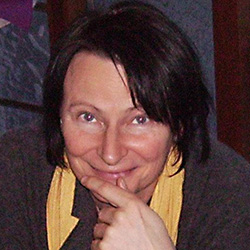 |
|
Dr. Renate Müller-Wollermann
Film: Hooligan Sparrow
Q&A:
Thursday, 23.11.2017, 6:00 pm, Studio Museum
Renate Müller-Wollermann has been working as an honorary
employee for Amnesty International since 1978. The main focus of
her work lies on East-Asia, she is managing the coordination of
Amnesty’s work about Taiwan, Japan and Mongolia since 1989.
Müller-Wollermann has been traveling a lot to China and Taiwan,
profoundly getting to know the culture and people. Within the last
few years she has been involved in the setting up of Amnesty International
in Taiwan.
|
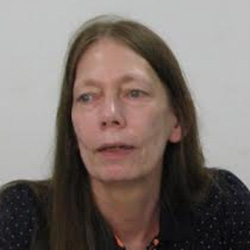 |
|
Meike Nack
Lecture on Rojava
Thursday, 23.11.2017 , 8:00 pm, Club Voltaire
Meike Nack joined the women’s initiative “WJAR – Foundation
for Free Women in Rojava“ in 2014. This organization was
founded in northern Syria in September, 2014.
The members want to support women and children who were especially affected
by the consequences of poverty, violence and war. The foundation lends
special support to those women who are able to make significant changes
through their personal commitment. Through its projects, WJAR creates
space for women to build up new lives free of patriarchal violence and
oppression. Meike Nack lived on site together with these women for a
year and now wishes to create a bridge between the women in Europe and
those in the Middle East. Meike says the following about the necessity
of the project: “Many people want to stay in Rojava no matter what
the conditions. They would rather stay there to help with reconstruction
work instead of becoming a refugee in other countries.“ Today Meike
Nack is a staff member and European speaker for the Foundation for Free
Women in Rojava.
|
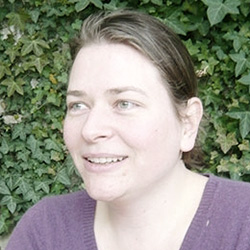 |
|
Franziska Plümmer
Film: Hooligan Sparrow
Q&A:
Thursday, 23.11.2017, 6:00 pm, Studio Museum
Franziska is working as a research assistant and Ph.D. student
for the faculty of Sinology and Korean studies at the University
of Tübingen. 2012 she has been working as visiting reasearcher
at the German Institute of Global and Area Studies at the Institute
of Asia Studies in Hamburg. Her main research is based on the Chinese
Foreign and Security Policy. Within her doctoral thesis Franziska
Plümmer is analyzing the Chinese border management and the
transboundary migration in the context of regional transformations
in Asia. Within the scope of this project, she has been researched
the local methods of boundary controls and policy in Yunnan and
Julin.
|
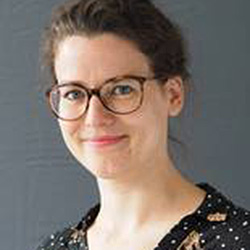 |
|
Gisela Schneider
Film: City of Joy
Q&A:
Tuesday, 28.11.2017, 3:30 pm, Museum Kino 2
Dr. med Gisela Schneider is working as a doctor, specialized in
tropical medicine and public health and is leading the German Institute
for Medical Mission in Tübingen (Difäm e.V.). From July
2014 to November 2015, Gisela Schneider has been in several missions
in regions which has been affected by the Ebola epidemic in Western
Africa. Difäm gets involved in the stabilization of local
health systems in Africa. Beside of Western Africa, there is also
a focus on the Democratic Republic of the Congo. The objective
is to provide access to health for every human, no matter where
they live and without falling thereby in poverty. In this process,
especially disadvantaged people and vulnerable groups are respected.
|
 |
|
Sibylle Schreiber
Film: Some Things Are Hard to Talk About
Q&A:
Saturday, 25.11.2017, 3:30 pm, Studio Museum
Sibylle Schreiber studied Social Sciences in Göttingen and
Belfast, and is currently- after many years with the human rights
organization TERRE DES FEMMES – the regional managing director
of pro familia in Berlin. The association advocates for autonomous
family planning, self-determined sexuality, identity and reproduction,
for the right to physical and emotional well-being, and for sexual
and reproductive health rights.
|
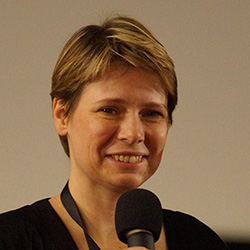 |
|
Collin Schubert
Film: The Poetess
Q&A:
Tuesday, 28.11.2017, 6:00 pm, Museum Kino 2
The psychologist Collin Schubert has been active with TERRE DES
FEMMES since 1999, giving lectures and continuing education sessions.
She has worked in the areas of women’s rights in Islamic
societies. Collin Schubert’s emphases are violence in the
name of honor, women’s roles and the image of women in Islam
and political Islam. As a student she lived for three years in
Afghanistan and received the Citizen’s Award of the city
Tübingen for her Afghanistan commitment.
|
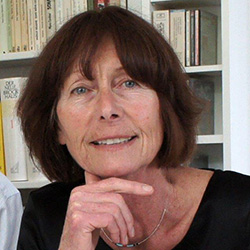 |
|
Ara Stielau
Film: City of Joy
Publikumsgespräch:
Dienstag, 28.11.2017, 15:30 Uhr, Studio Museum
Ara Stielau studierte Südasienwissenschaften und Politische
Wissenschaften mit Schwerpunkt feministische Theorie in Berlin.
Nach ihrem Master-Abschluss in Gender and Development am Institute
of Development Studies (IDS, Sussex, UK) hat sie über 10 Jahre
im Auftrag der deutschen und der niederländischen Entwicklungszusammenarbeit
in Westafrika die Umsetzung von Frauenrechten begleitet. Dabei
hat sie lokale Frauenorganisationen und –netzwerke beraten
und Gender Mainstreaming in Gremien und Programmen der Entwicklungszusammenarbeit
konzeptionell und durch Training unterstützt. Seit 2010 leitet
sie den Bereich Auslandsprojekte bei medica mondiale e.V
|
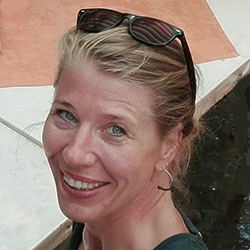 |
|
|

